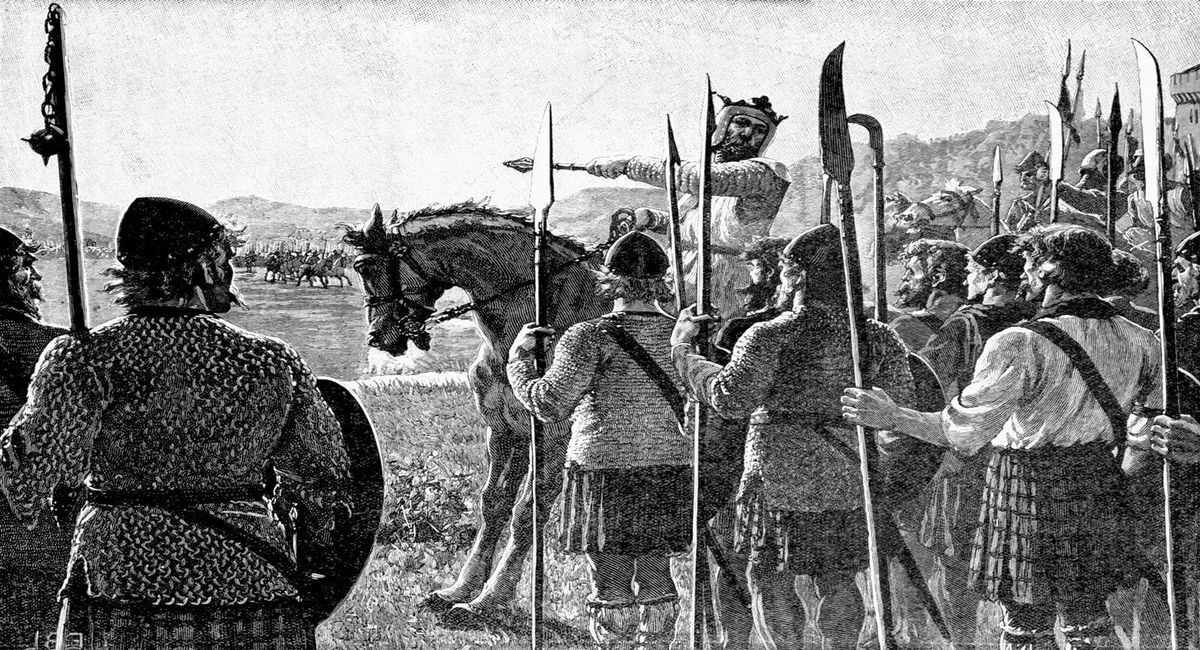
What was the Despenser War? The Despenser War was a series of conflicts in England during 1321-1322. It revolved around the power struggle between King Edward II and rebellious barons led by Roger Mortimer and Thomas of Lancaster. The barons opposed the king's favoritism towards Hugh Despenser the Younger, who had gained significant influence and wealth. Tensions escalated, leading to battles and skirmishes. The conflict ended with the defeat of the barons and the execution of Lancaster. This war highlighted the deep divisions within the English nobility and the challenges to royal authority during Edward II's reign.
Key Takeaways:
- The Despenser War was a medieval conflict in England, named after the powerful Despenser family. It was a power struggle between the king and his barons, leading to decisive battles and long-lasting political effects.
- The war highlighted the dangers of favoritism and unchecked power in the monarchy, ultimately leading to the downfall of the Despensers and setting a precedent for future conflicts between the English crown and its nobility.
What Was the Despenser War?
The Despenser War was a conflict in medieval England during the reign of King Edward II. It revolved around the power struggle between the king and his barons, particularly focusing on the Despenser family. Here are some intriguing facts about this historical event.
- The Despenser War occurred between 1321 and 1322.
- It was named after Hugh Despenser the Younger and his father, Hugh Despenser the Elder.
- The Despensers were favorites of King Edward II, which caused resentment among other nobles.
- The conflict was part of a larger power struggle between the king and his barons.
- The war began when a group of barons, led by Thomas, Earl of Lancaster, rebelled against the Despensers' influence.
Key Figures in the Despenser War
Several notable individuals played crucial roles in the Despenser War. Their actions and decisions significantly impacted the course of the conflict.
- King Edward II was the reigning monarch during the Despenser War.
- Hugh Despenser the Younger was a close advisor and favorite of King Edward II.
- Hugh Despenser the Elder, father of the Younger, also held significant power and influence.
- Thomas, Earl of Lancaster, led the baronial opposition against the Despensers.
- Queen Isabella, Edward II's wife, later played a pivotal role in the downfall of the Despensers.
Causes of the Despenser War
Understanding the causes of the Despenser War helps to shed light on the motivations behind the conflict.
- The Despensers' accumulation of wealth and land caused jealousy and anger among other nobles.
- Their influence over King Edward II led to political favoritism and corruption.
- The barons felt marginalized and sought to regain their power and influence.
- Economic hardships and heavy taxation added to the discontent among the populace.
- The Despensers' harsh treatment of their enemies further fueled the rebellion.
Major Battles and Events
The Despenser War saw several significant battles and events that shaped its outcome.
- The Battle of Boroughbridge in 1322 was a decisive conflict where the royal forces defeated the rebels.
- Thomas, Earl of Lancaster, was captured and executed after the Battle of Boroughbridge.
- The Despensers used their influence to confiscate lands and wealth from their enemies.
- The rebellion was ultimately crushed, and the Despensers' power was temporarily secured.
- The war led to increased tensions between King Edward II and his barons, setting the stage for future conflicts.
Aftermath and Legacy
The Despenser War had lasting effects on the political landscape of medieval England.
- The Despensers' downfall came in 1326 when Queen Isabella and Roger Mortimer invaded England.
- Hugh Despenser the Younger was captured, tried, and executed for treason.
- King Edward II was deposed and later murdered in captivity.
- The Despenser War highlighted the dangers of favoritism and unchecked power in the monarchy.
- It set a precedent for future conflicts between the English crown and its nobility.
Final Thoughts on the Despenser War
The Despenser War was a pivotal moment in English history. It highlighted the intense power struggles between King Edward II and his barons, particularly the Earl of Lancaster. The conflict centered around the influence of the Despenser family, who were seen as corrupt and manipulative. This war ultimately led to the downfall of many key figures and set the stage for future conflicts in England.
Understanding the Despenser War gives us insight into the complexities of medieval politics and the fragile nature of royal authority. It also reminds us of the lengths individuals will go to for power and control. The events of this war had lasting impacts on the governance of England, influencing the balance of power between the monarchy and the nobility for years to come.
Frequently Asked Questions
Was this page helpful?
Our commitment to delivering trustworthy and engaging content is at the heart of what we do. Each fact on our site is contributed by real users like you, bringing a wealth of diverse insights and information. To ensure the highest standards of accuracy and reliability, our dedicated editors meticulously review each submission. This process guarantees that the facts we share are not only fascinating but also credible. Trust in our commitment to quality and authenticity as you explore and learn with us.
